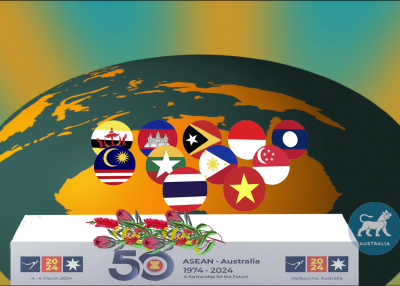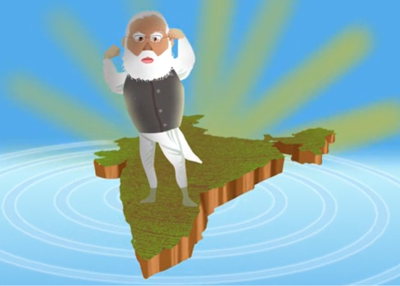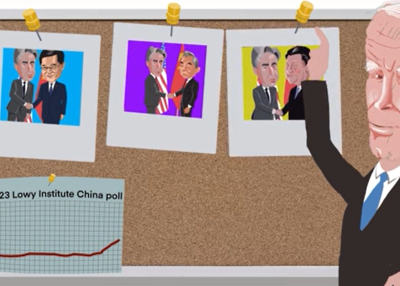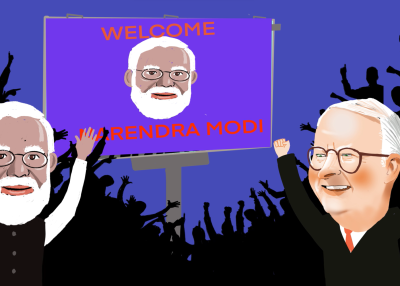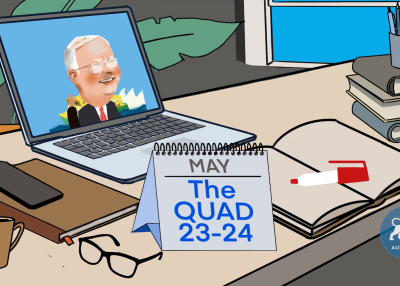Briefing MONTHLY #45 | December 2021
Holiday reading from war lessons to Jakarta street life and Ai Weiwei | Asia’s tourism pain
Illustration by Rocco Fazzari.
BOOKSHOPPING
Despite diversification and decoupling being the new buzzwords in relations with (or without) China, the Middle Kingdom is still the standout subject in our annual selection of holiday reading.
We asked Asia Society Australia staff and some of the many people who took part in events and publications through the year for some reading tips – from golden oldies with fresh relevance to new publications.
Our readers are still mostly focussed on non-fiction, although there are some more novels here than in some past years. And there is a new feature in a book written by a staff member. The slightly longer editor’s list draws attention to some of the new books about Asia from Australian authors this year.
So, what’s hot with our readers? Linda Jaivin’s The Shortest History of China and The Beijing Bureau, edited by Trevor Watson and Melissa Roberts, are this year’s new book choice winners – and both by Australian authors. But Min Jin Lee’s novel Pachinko, first published and reviewed here in 2017, remains a continuing favourite.
And if these books don’t provide enough summer reading, instead of our usual monthly wrap we have a review of some of the reports we covered this year which will have continuing relevance into the new year.
Happy reading.
HUONG LE THU
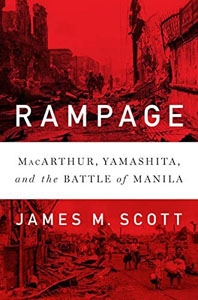
Rampage: MacArthur, Yamashita, and the Battle of Manila by James Scott
This holiday season I suggest some heavy, but important reading. With growing geopolitical anxiety and “drums of war”, for Australians who do not have experiences of fighting wars on their own soil, it is important to understand their horror not only at the time they are fought but also long after they conclude. Wars are not only romanticised missions abroad that can be withdrawn from at any point; they hardly ever go as planned in the national security rooms. Invoking their potential is too easily done by those who have not experienced the trauma nor can imagine the scale of physical and psychological hurt that can determine a nation’s future for decades.
Rampage details the American campaign under General Douglas MacArthur to reclaim Manila, America’s Pearl of the Orient, which had been seized by the Japanese in 1942.
The Jakarta Method by Vincent Bevins
This book recounts the US anti-communist crusade and mass murder program in 1965-66 in Indonesia during which an estimated one million people were killed in an effort to destroy the political left and movements for government reform in the country.
A Rumor of War by Philip Caputo
A memoir of a young lieutenant who landed at Danang in Vietnam on March 8, 1965, convinced like many young soldiers that American forces would win a quick and decisive victory over the Communists. The book contains terrifying vividness and honesty about the devastating effects of the war on the soldiers and the things men do in war and the things war does to men. A harsh read, but reality is harsher.
Formosa Betrayed by George H. Kerr
Based on memories of a US diplomatic officer in Taiwan, who witnessed the February 28 incident, and the corruption and killings committed by the Kuomintang in Taiwan after World War II. For those who want to learn a little more about Taiwan’s history, this is one of the classics depicting the transition from Japanese colonial rule and the evolution of Taiwanese nationalism.
Smile as they Bow by Nu Nu Yi
Now for a change of pace, Nu Nu Yi’s novel takes us to a small village near Mandalay. The story follows Daisy Bond, a queer natkadaw (spirit medium) who is forced to deal with a personal crisis unfolding at the festival. Her vivid stories give a glimpse of this beautiful country.
- Huong Le Thu is a senior analyst at the Australian Strategic Policy Institute and a contributor to the Asia Society Southeast Asia and COVID-19 project.
BATES GILL
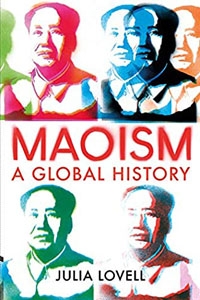
Maoism: A Global History by Julia Lovell
A remarkably researched and entertaining read by the award-winning University of London scholar whose works have covered the Opium War, the Great Wall, and China's pursuit of the Nobel prize in literature, this book has us rethink the critical role Maoist adherents played in the geopolitics of the Cold War and reminds us how Maoist groups continue to politically prosper in different corners of the globe today--including in China.
The Shortest History of China by Linda Jaivin
Witty, irreverent, deep in erudition and told by one of Australia's great Sinologists, Shortest History can be read over a weekend, or enjoyed by dipping in and out for bursts of new insights on the land we call China. Even the lifelong China scholar will discover unexpected, under-represented yet critical elements of China's past that Jaivin consistently succeeds in linking to the present. A great read.
Orchestration: China's Economic Statecraft Across Asia and Europe by James Reilly
University of Sydney scholar James Reilly delivers the best work available dissecting and explaining the often-contradictory political-economic incentives driving China's single most important instrument of state power: its economic statecraft. Through extensive field work in Europe, Central Asia, Myanmar and even North Korea, Reilly unpacks the successes and failures of China's global economic ambitions and reminds us that it is a lot more complicated and contentious than we think behind the red curtain.
- Professor Bates Gill is Head of the Department of Security Studies and Criminology at Macquarie University and the inaugural Asia Society Australia Scholar-in-Residence. His next book, Daring to Struggle: China's Global Ambitions under Xi Jinping will be published by Oxford University Press in May 2022.
RICHARD MAUDE
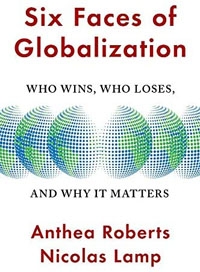
Six Faces of Globalisation: Who wins, who loses, and why it matters by Anthea Roberts and Nicolas Lamp
An essential guide to understanding today’s debates about the economic, social and geo-political effects of globalisation and what course it might take in the future. Roberts and Lamp distil six main narratives about globalisation used by supporters and detractors. If you want to understand Donald Trump’s election, or the current focus on economic sovereignty and security in countries like the United States and Australia, or why globalisation is less contentious in Asia than it is in the West, read this book.
The Shortest History of China by Linda Jaivan
Nothing about China is small in scale, Linda Jaivan reminds us. But in this brilliant survey of China’s grand and tumultuous history, she takes us from Peking Man through to Xi Jinping and “apprehension about a new Cold War – or worse” in a compact 250 pages. Jaivan neatly weaves history, culture and language into her compelling narrative, ending poignantly (and pointedly) by observing that China “historically has flourished most in times distinguished by their diversity and openness”.
- Richard Maude is Asia Society Australia executive director, policy and a senior fellow at the Asia Society Policy Institute.
SANDRA SENO-ALDAY
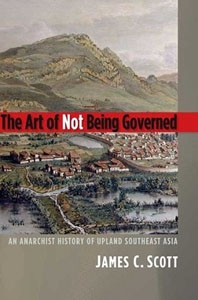
The Art of Not Being Governed: An Anarchist History of Upland Southeast Asia by James Scott
This was published a while back, but is an interesting reminder of the vastness and diversity of Asia.
The Silk Roads: A New History of the World by Peter Frankopan
This is a good reminder of how far back in history our global interconnectedness goes.
- Sandra Seno-Alday is a lecturer in international business at the University of Sydney and spoke on gender inequality for Disruptive Asia Volume 5.
DOMINIQUE FRASER
Kololo Hill by Neema Shah
This debut novel is part historical fiction and part family drama. It follows the story of a family of Indian background as all Asians are given 90 days to leave Uganda in 1970. Told from different viewpoints, it deals with a part of world history that hasn’t been dramatised often enough. It prompts the reader to ponder how we would cope with having to establish an entirely new life in a part of the world from where you might hold a passport, but which is as far removed from your old life as can be.
- Dominique Fraser is an Asia Society Policy Institute research associate.
JAMES SCULLIN
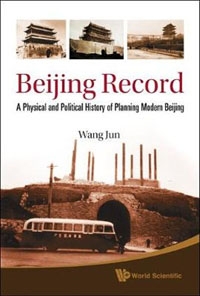
Beijing Record: A Physical and Political History of Planning Modern Beijing by Wang Jun
Any regular traveller to Beijing will know the city changes with each visit, and signs of the ancient imperial city today are increasingly hard to find. This forensic study tracks the city’s urban transformation, including the history of the city’s gates and the dismantling of the old city wall, as well as other planning decisions taken at central and municipal levels that transformed the city in the 1950s and 1960s.
Everything Was Forever, Until It Was No More: The Last Soviet Generation by Alexei Yurchak
While not having an Asia-focus per se, it is well known the Communist Party of China studies the causes of the fall of the Soviet Union closely. This analysis of the political and cultural paradoxes that led to the Soviet Union’s demise from within would no doubt make for essential reading for leading Chinese cadres looking to avoid a similar fate to the Soviets.
- James Scullin is Director, Programs at Asia Society Australia.
ANDREW TIJS
Gastro Obscura by Cecily Wong and Dylan Thuras
From the team at Atlas Obscura, this Gastro guide from 2021 is a smorgasbord of fascinating, tell-your-friends trivia about what, how and why humans around the globe choose to eat. While it spans all corners, the book also (inadvertently) reveals how Asian cuisine has spanned oceans and influenced the culture of almost every country on the planet – you can visit Chinese restaurants in Alaska, Easter Island, the Arctic Circle and Antarctica.
- Andrew Tijs is Associate Director, Marketing and Communications at Asia Society Australia.
JACK BUCKLEY
Vengeance is mine, all others pay cash by Eko Kurniawan
A modern Indonesian novel canvassing life among the poorer classes of society and the pressures they face. While some of the subject matter is confronting, Kurniawan is a master story-teller keeping you turning the pages as you follow a young man trying to find meaning in his life through self-destructive street fights against rival gangs.
- Jack Buckley is an Asia Society Australia Generation Asia member.
AARON SOANS

The Chess-Board and the Web: Strategies for connection in a networked world by Anne-Marie Slaughter
With the re-emergence of national populism around the world, the nation state is making a comeback. However, the traditional model of viewing the world as a chess board with states engaged in a Great (zero sum) Game is incomplete. Today’s networked problems -like pandemics, supply chains, digital interoperability, drug smuggling and climate change – require networked solutions. Anne-Marie Slaughter uses the tools of network theory to provide foreign policy makers with effective strategies to address these complex issues.
Ethics and International Relations: A Tragic Perspective by Richard Ned Lebow
Using case studies and original data sets, Lebow shows that initiators of war and military interventions rarely achieve their military or political goals, especially in the period since 1945. Moreover, the initiators often lose standing and influence. Interventions by multilateral coalitions that are sanctioned by appropriate regional or international organisations are most likely to succeed. The key reasons are that successful coalitions compel initiators to moderate their goals and require justification on the basis of international laws and norms. This book makes an important case for ethical conduct in the current era of Great Power politics.
The Third Pillar: The Revival of Community in a Polarised World by Raghuram Rajan
During the pandemic, the loss of community and connection was felt starkly due to the abruptness of lockdowns; however the social bonds that hold communities together have been fraying for many decades. Rajan, a former central bank governor of India and chief economist at the IMF, provides a macro-historical view of the rise of the state and markets from feudal communities. He argues that these three pillars - state, markets and communities - work best when they are in balance. He calls for more localism to empower communities whilst keeping the state and market in a healthy balance.
- Aaron Soans is a research fellow at the Australian APEC Study Center and coordinator of A Path to Viet Nam.
ERIN McCULLAGH
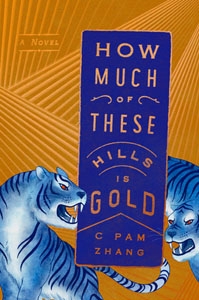
How much of these hills is gold by C Pam Zhang
Set in the wild west and focusing on the experiences of two children of Chinese immigrants, this book is a new take on a familiar setting. The book blends the challenges of navigating American gold rush country with the two girls' constructed memories of a China they've never visited and the patchwork of stories and traditions tied to their identities. It is gritty, but the beautiful, poignant prose is unforgettable.
Pachinko by Min Jin Lee
This book follows the Baek family over many decades through their migration from Korea to Japan and adaptation to a new language, culture and society - one that is simultaneously facing the upheaval of the Second World War and the decades which followed. This is a book that draws you in, with its detailed depictions of everyday life in Korea and Japan, as well as thoroughly endearing characters. At almost 500 pages, it's not short, but rather something you enjoy slowly to fully savour the taste.
Almond by Won-Pyun Sohn
Almond is a coming-of-age novel about a young boy growing up in South Korea with an inability to feel emotions. We watch as he tries to recover from a particularly traumatic incident, while struggling to understand the confusing emotions of young adulthood. Told in the first person, this book provides us a narrator with a refreshingly unique voice, even in translation. Although technically young adult fiction, it presents a hard-boiled view of society, but not without moments of lightness.
- Erin McCullagh is the Asia Society Australia Generation Asia lead member from the Australia-Japan Youth Dialogue.
LENA DUCHENE
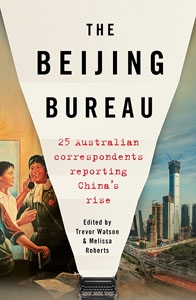
The Beijing Bureau edited by Trevor Watson & Melissa Roberts
As China-Australia tensions worsened, Australian reporters working in China were asked to leave the country in September 2020. Throughout their shared stories, The Beijing Bureau offers important insights on China’s current political climate. From 1972 to 2020, these journalists’ lives have intertwined with major events such as the Cultural Revolution, the economic reforms of the 1980s, the Tiananmen Square Massacre, the Hong Kong protests, and the rise of President Xi Jinping.
How we disappeared by Jing-Jing Lee
Wang Di is seventeen when she is taken away from her Singaporean village and forced into sexual slavery in a Japanese military brothel. Fifty-eight years later, she is still hunted by these years of hardship. A second storyline follows young Kevin, whose path will intertwine with Wang Di in a moving conclusion. I enjoyed learning about the Singaporean comfort women experience but I would also highly recommend this book for its heart-warming portrayal of trust, family, and resilience.
- Lena Duchene is an Asia Society Australia program manager and curator of Disruptive Asia Volume 5: Women and Girls.
FANGYUAN HUO
Kim Jiyoung Born 1982 by Cho Nam-Joo
An incredible book and a must-read if you want to learn about what it is like being a female in South Korea. You give up your education and work in a factory to support your brother’s education, you marry someone who only sees your reproductive value and you are invisible in the society. The saddest part is that you follow down the same path as your mum and you repeat the pattern and treat your daughter the same way you were treated. A common life story for Asian women, but it’s powerful!
- Fangyuan Huo is an associate at Asia Society Australia.
GREG EARL
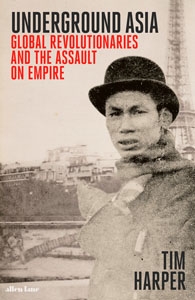
Underground Asia by Tim Harper
This book traces what Harper calls the “greatest missionary undertaking of the modern age” – the footloose travels around the world in the first three decades of the 20th century by revolutionaries who overthrew colonialism in Asia. With a particular focus on Nguyen Ai Quoc (AKA Ho Chi Minh), Tan Malaka in the Malay archipelago and M.N. Roy in India but many more, he reveals the origins of a transnational underground movement of nationalists, communists and anarchists who convulsed the continent with a rebellion which peaked in the late 1920s. These men and remarkably many women networked around the world often with the help of the new Soviet Union but often had a different vision for their future countries than the Comintern – something the colonial police failed to understand. As Harper says “they were pathfinders for a world without empire and an Asian future.”
The Beijing Bureau edited by Trevor Watson and Melissa Roberts
It has been a big year for books on the great unravelling of relations with China from the big picture to the personal accounts of the last journalists to leave. But this collection of memoirs from reporters who managed to stay over almost 50 years fills in the backstory of bilateral relations that seems to have almost faded from the contemporary discussion. It is little appreciated how Australian-born journalists have not only reported on China for the local media but are also commonly employed by the international media as China correspondents. That may be their only place for some time.
First Person Singular by Haruki Murakami
This collection of short stories by most Japan’s best known contemporary novelist contains all the staples of Murakami fiction from baseball to jazz bars, but pushes the magical realism even further. It seems to deliberately cross the lines between fiction and memoir with even a character called Haruki Murakami. Whether this is a new genre for the author or some sort of recognition his stellar career may be coming to an end remains to be seen. It also seems to be a quite mixed response to the recent criticism of Murakami by Japan’s new generation female writers that his portrayal of women is too one dimensional for the Me Too era.
Not Always Diplomatic by Sue Boyd
Sue Boyd joined the Department of External Affairs in 1970 and quickly found herself as a rare female diplomatic representative for Australia when the Whitlam government tried to present a different look to the world. Boyd’s career took her to many different countries, including heading missions in Bangladesh, Vietnam, Hong Kong and Fiji which she recounts with elan in this memoir in a way not often found in diplomatic histories. But from those posts to briefing ministers and the media back home, this book is an insightful account of how she played a considerable role in paving the way for the many more women diplomats Australia has today
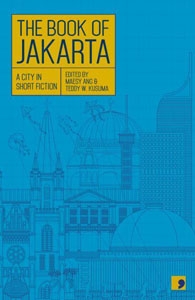
The Book of Jakarta edited by Maesy Ang and Teddy Kusuma
Subtitled as “A city in short fiction” this collection of ten short stories by Indonesian authors takes the reader on a journey into the everyday heart of the city encompassing recent history and a more dystopian future in a polluted and flooded metropolis. But the characters are ordinary Jakarta dwellers rather than the elite and they reveal the work arounds they need to survive from getting as passport to getting somewhere on public transport. What emerges is a the delightfully diverse underbelly of a chaotic city.
Young Soeharto by David Jenkins
Leadership change – democratic or otherwise - is gradually happening in Asia more often these days but Jenkins has spent his career studying the three-decade time in power of Indonesian president Soeharto, who left office in 1998 and died in 2008. And as the subtitle – The Making of a Soldier 1921-49 – suggests this is only the first volume of as planned three volume exhaustive account. It brings out new material about how Soeharto emerged from a poor Javanese background via Japanese training during World War 2 to become such as enduring leader in a tumultuous time in Indonesia’s history.
1000 Years of Joys and Sorrows by Ai Weiwei
While he is famous for his conceptual artworks that challenge authority and traditional Chinese culture, Ai Weiwei’s memoir is an exploration of family, politics and art practice. The dissident artist outlines striking parallels between the lives of his father and himself, revealing the forced burning of his father’s books by the Red Guards as a key moment that inspired his “commitment to reason, to a sense of beauty… [which if suppressed] is bound to provoke resistance”. His examination of Chinese political history is so in-depth that at times the memoir almost doubles as a book on the topic. But the hand drawn illustrations scattered throughout the book ensures the reader remains conscious of the artist at its centre.
A Passage North by Anuk Arudpragasam
The only novel by an Asian writer on this year’s Booker Prize shortlist is a story of a young Tamil man travelling across Sri Lanka in the wake of the country’s brutal 1983-2009 civil war. His slow journey north for a funeral takes the reader on another reflective journey through the origins and outcomes of the war on family, the landscape and memory.
Fear of Abandonment by Allan Gyngell
There is now an updated version of this book first published in 2017 where Gyngell outlines his overarching view that the main motivating force in Australia’s approach to the world has been fear of being left alone by great and powerful friends. The new edition catches up with the Trump era, Brexit, Xi Jinping’s assertiveness and impact of the pandemic on geopolitics.
- Greg Earl is the editor of Briefing MONTHLY and Disruptive Asia.
PLUS: FROM ASIA SOCIETY AUSTRALIA
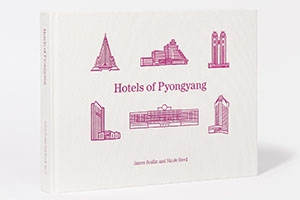
Hotels of Pyongyang by James Scullin and Nicole Reed
Programs director James Scullin has produced a fascinating photography book on North Korean architecture taken from a trip he made to Pyongyang in 2019. With free travel forbidden within North Korea, the hotel becomes a central feature of any visit to Pyongyang. With local architects having minimal exposure to international architecture, the exterior and interior design of the hotels offer a unique and bizarre blend of Soviet brutalism, 70’s kitsch and a Wes Anderson film set.
NEIGHBOURHOOD WATCH
ASEAN DEMOCRACY
With an election in the Philippines in 2022, possibly one in Malaysia and an impasse in Myanmar, the state of democracy in Southeast Asia was a rising issue before it got entangled in US President Joe Biden’s Summit for Democracy. The Asia Foundation has been releasing findings from a long running research project on civic space in this region. It offers suggestions on how aid partners like Australia can contribute to more resilient civic space in the face of democratic backsliding and especially after the pandemic. Asia Society Australia’s Southeast Asia and COVID-19 project also contains some interesting interviews on how the pandemic will affect democratic space in the region.
PACIFIC RENOVATION
The Morrison government’s decision to put almost $1.8 billion into helping Telstra takeover mobile phone company Digicel Pacific certainly stepped up the three-year-old Pacific Step-up policy this year, overshadowing the more extensive reforms to Pacific worker schemes. But a much lower profile review of Australia infrastructure spending in the Pacific in the ten years leading up to the 2018 Step-up policy, is a more interesting insight into how the increased aid focus on the Pacific is likely to work in future with more of a whole of government focus. The review, led by former senior bureaucrat Stephen Sedgwick, recommends much closer coordination between the new hard infrastructure building and what might be called the older “soft infrastructure” aid in governance, health and so on. It says the broadened Australian aid program – with its new mix of equity, loan and grant arms – has a capacity to pull together the governance framework, human skills and quality building that will avoid the “build-neglect-rebuild” failed projects from the past.
GROWING ASIA
With the pandemic at least somewhat under control across the region after some severe tests for even hyper-organised Singapore and Japan, attention is returning to the old challenge of achieving rapid and sustainable socioeconomic development. The Asian Development Bank’s survey of Asian development since the 1960s was published last year to commemorate its 50th anniversary, but quickly overtaken by the pandemic. However, the Australian National University’s Hal Hill describes it as “arguably the most comprehensive analysis of Asia-Pacific economic development yet published.” So, with that sort of rap, Asia’s Journey to Prosperity. Policy, Market, and Technology Over 50 Years is a good place to go back to basics when much is up for grabs again in post-COVID economic policy making.
ASIAN NATION
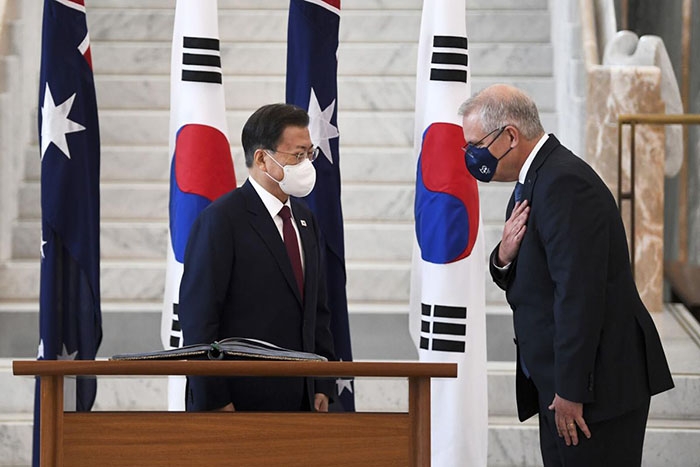
Korean President Moon Jae-In meets with Scott Morrison in Canberra. Image: AAP
KOREA CALLING
South Korean president Moo Jae-in’s visit to Australia in December – the first in 12 years – only served to underline the curious status of South Korea as probably the most important country that gets the least attention in Australia. It is hard when you are sandwiched between China and Japan to raise your profile, but that’s what makes South Korea more interesting as Australia tries to chart the many what-ifs after falling out with China. With the two countries sealing a Comprehensive Strategic Partnership this year, this University of Western Australia Black Swan strategy paper makes a good starting point for understanding ways to build the relationship. (See Briefing MONTHLY September). The latest issue of East Asia Forum Quarterly looks more broadly at the country ahead of next year’s presidential election. And Asia Society Australia now has its own three-part project looking at the middle power parallels between the two countries with three newly appointed Australia-Korea Fellows.
JAPAN RELATIONS
With a new Japanese prime minister promising both continuity and change, a bilateral military cooperation deal to be signed soon, and a continuing strong flow of Japanese investment into Australia, Australia’s strongest regional relationship might look solid. But concern about complacency has ebbed and flowed ever since the country’s economic boom imploded three decades ago. The latest manifestation comes in the report from a major research project by the Australia-Japan Research Centre which argues: “Reimagining the Japan relationship begins with understanding the risks of complacency. Australia cannot assume that the political and economic facts that have underpinned the relationship with Japan will sustain it in the years and decades ahead.” Reimagining the Japanese Relationship argues that decarbonisation and ageing present fundamental changes to everything that has gone before and will require a new form of engagement across areas not so prominent before such as education, culture, sport and technology sharing.
ASIAN STUDENTS
The federal government's new ten-year foreign education strategy is presented as creating a better experience for domestic university students and better alignment of incoming students with domestic labour force needs. But buried in the details is a roadmap for much greater government intervention and regulation of the way universities and private training organisations manage foreign students when they return after the pandemic. What was a $40 billion services export industry before the pandemic will be radically different with regulation of classroom diversity, caps on students from some countries, more online education and more delivery offshore in country.
Meanwhile with New Colombo plan scholarships recipients hopefully able to go offshore again after a two-year hiatus, the results from a lengthy review of the program show it is helping students into jobs based in the region nor with employers engaged with the countries the students visit. The Deakin University report describes the NCP is a “stellar example of reversal mobility, through which students from a developed country in the Global North are given the opportunity to study, undertake internship and experience life in the Indo-Pacific region”.
DEALS AND DOLLARS
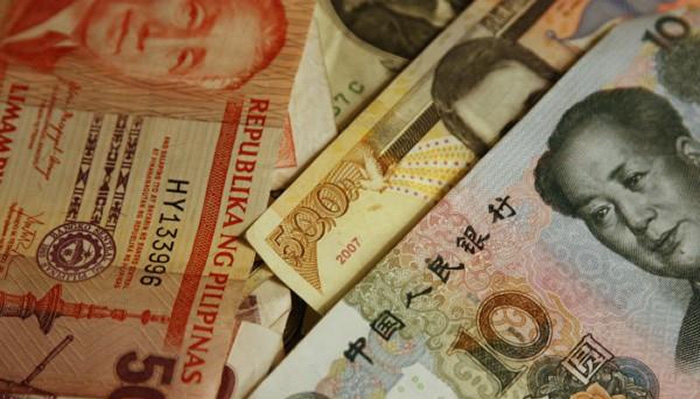
THE NEW D WORD
This has been the year when this section of Briefing MONTHLY has increasingly been all about diversification from companies like Seek and Austal pulling back from China to government rhetoric shifting from economic sovereignty to China plus.
As the global supply chain crisis slowly made it way to Australia with travel-starved consumers switching to online shopping and overwhelming the transport system, an interesting debate emerged.
Early in the year a group of former DFAT economists warned against overconfidence about how well some (mostly farm) exporters had responded to Chinese coercive sanctions in a study which said they might face poorer long-term prices in the alternate markets hey had found.
The Productivity Commission produced two reports commissioned by Treasurer Josh Frydenberg which urged caution about whether Australian imports and exports were particularly vulnerable to supply chain disruptions. They use a new methodology to judge just which products and trade partners present the biggest vulnerabilities, but there has still not been a clear government response to these reports.
Amongst the non-government responses to this supply chain and diversification debate, this Australian Strategic Policy Institute report said the federal government should appoint an assistant trade minister with the specific responsibility for diversifying exports and imports to prepare for a deeper conflict with China.
But this Australia-China Research Institute/Business Council of Australia study says Australia’s export market concentration (mainly China) is broadly in line with peer countries but it suffers from an export product concentration.
But this working paper by Scott Waldron, Victor Ferguson and Darren Lim on the impact of the China trade sanctions suggests that Australian industries which are used to open markets — like agriculture — have proven quite resilient.
And rounding out this debate, this joint study by the Perth USAsia Centre and the Asia Society Policy Institute provides new options for dealing with trade coercion when the World Trade Organization is curtailed by the absence of its appeal body.
INDONESIA REDUX
One of the key government responses to the lost trade with China was to refocus on Indonesia with the release of the Blueprint for Trade and Investment in Indonesia. This Department of Foreign Affairs and Trade publication focuses on education and training; health and aged care; agrifood; and resources and energy services, with other sectors to be covered in future. But it also examines how digitisation, a rising middle class and demographic shifts have changed the Indonesian business scene and argues that these changes mean Australian businesses should “look at Indonesia through a new prism.”
TEAMING UP
Trade minister Dan Tehan embraced the idea of a Team Australia approach to boosting Australian business engagement in Asia in April when he launched the final volume of the Business Council of Australia/Asia Society Australia report on regional business. The A Second Chance report proposes both a Team Australia approach and measures to boost awareness of Asian cultures at senior levels of business, amongst other measures. Tehan said DFAT would take on a new role to “see we are all on the same page” and the Blueprint for Trade and Investment in Indonesia (see above) also took this concept up.
DIPLOMATICALLY SPEAKING
It has been a big year for (un)diplomatically speaking on the international stage, from New Zealand ministerial comments on China to the showdown in Alaska between US and Chinese officials. This exchange of views amongst three former Australia’s prime ministers on India was also remarkable. But from the moment the words were uttered, this year’s plain-speaking winners became odds-on favourites.
“I think what happened was to use an English phrase… clumsy, it was not done with a lot of grace. I was under the impression that France had been informed long before, that the [French] deal was not going through.”
Joe Biden (October 29)
“The AUKUS deal was very bad news for France - but not just for France, because I think it's a very bad news for credibility of Australia and a very bad news for the trust that great partners can have with the Australians. I think this is detrimental to the reputation of your country and your Prime Minister.”
Emmanuel Macron (October 30)
“The statements that were made questioning Australia’s integrity and the slurs... have been placed on Australia, not me, I’ve got broad shoulders. I can deal with that.”
Scott Morrison (November 2)
DATAWATCH
LONG ROAD BACK
As some regional countries begin to reopen for tourism, these figures from the Asian Development Bank show the different ways of valuing the biggest losers in Asia from the tourism decline due to the pandemic. Thailand and Hong Kong notably feature in the top ten in each of the measures which show absolute value and share of economy.
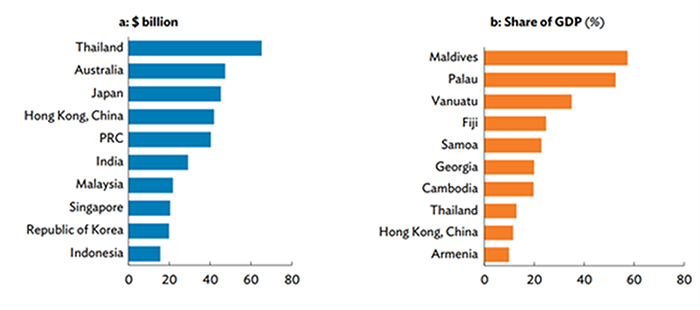
Source: Asian Development Bank
ABOUT BRIEFING MONTHLY
Briefing MONTHLY is a public update with news and original analysis on Asia and Australia-Asia relations. As Australia debates its future in Asia, and the Australian media footprint in Asia continues to shrink, it is an opportune time to offer Australians at the forefront of Australia’s engagement with Asia a professionally edited, succinct and authoritative curation of the most relevant content on Asia and Australia-Asia relations. Focused on business, geopolitics, education and culture, Briefing MONTHLY is distinctly Australian and internationalist, highlighting trends, deals, visits, stories and events in our region that matter.
We are grateful to the Judith Neilson Institute for Journalism and Ideas for its support of Briefing MONTHLY and its editorial team.
Partner with us to help Briefing MONTHLY grow. For more information please contact [email protected]

This initiative is supported by the Judith Neilson Institute for Journalism and Ideas.


